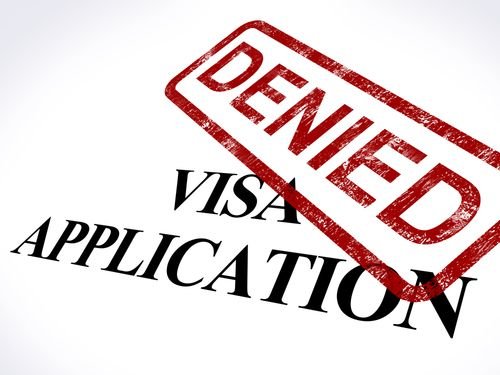The Comprehensive Ranking System (CRS) score is a critical factor in the Express Entry process for obtaining a Canada Skilled Worker Visa. It determines your ranking within the Express Entry pool and plays a significant role in whether you’ll receive an Invitation to Apply (ITA) for permanent residency in Canada. Improving your CRS score can significantly enhance your chances of being selected. This comprehensive guide will cover various strategies to boost your CRS score and secure your pathway to Canada.
Understanding the CRS Score
The CRS score is based on several factors, divided into four main categories:
- Core/Human Capital Factors: Age, education, work experience, and language proficiency.
- Spouse or Common-Law Partner Factors: Similar to core factors but applicable if you are applying with a spouse or partner.
- Skill Transferability Factors: A combination of education, work experience, and language skills.
- Additional Factors: Includes provincial nominations, job offers, Canadian study experience, siblings in Canada, and French language skills.
Each factor has a maximum number of points you can earn. The highest possible CRS score is 1,200 points, with the core factors and skill transferability factors contributing up to 600 points, and additional factors contributing another 600 points.
Improving Core/Human Capital Factors
Age
- Maximize Points Before Aging Out: The highest points for age (110 points for single applicants, 100 points for those with a spouse) are awarded to applicants aged 20-29. Each year beyond 29 decreases your points, so applying as early as possible within this age range is beneficial.
- Application Timing: If you are approaching a new age bracket that might reduce your points, consider submitting your application before your next birthday.
Education
- Complete Higher Education Levels: Higher education degrees earn more points. A Master’s degree or Ph.D. provides more points than a Bachelor’s degree.
- Educational Credential Assessment (ECA): Ensure all your foreign degrees are evaluated and recognized by an ECA. Without this, your educational qualifications won’t be considered.
- Canadian Education: Studying in Canada can provide additional points. Completing a Canadian post-secondary program can add significant points to your CRS score.
Work Experience
- Accumulate More Work Experience: More years of work experience, especially skilled work experience, translate into higher points.
- Canadian Work Experience: Work experience in Canada is particularly valuable. Participating in programs like the Working Holiday Visa can help gain Canadian work experience.
- Job Continuity: Ensure your work history is continuous and well-documented. Gaps in employment might reduce the points awarded.
Language Proficiency
- IELTS/CELPIP Preparation: Higher scores in language tests like IELTS or CELPIP can substantially increase your CRS score. Aim for a Canadian Language Benchmark (CLB) of 9 or higher in all four language abilities (listening, speaking, reading, writing).
- French Language Skills: Additional points are available for proficiency in French. Taking a French language test like TEF Canada can provide extra points, especially if you achieve high scores.
Enhancing Spouse or Common-Law Partner Factors
If you are applying with a spouse or common-law partner, their skills can also contribute to your CRS score. Here’s how to maximize those points:
Education
- Spouse’s Higher Education: Ensure your spouse has their highest educational qualifications assessed through an ECA. Higher education levels can add more points to your overall score.
Language Proficiency
- Language Tests for Spouse: Encourage your spouse to take language proficiency tests like IELTS or CELPIP. Higher scores in these tests can contribute additional points.
Work Experience
- Document Spouse’s Work Experience: Ensure that your spouse’s work experience is well-documented and falls within the categories recognized by the CRS system.
Boosting Skill Transferability Factors
Skill transferability combines your education, work experience, and language skills to calculate additional points. Here’s how to maximize these:
Education and Language Skills
- Advanced Degrees with High Language Proficiency: If you have an advanced degree and high language proficiency, this combination can earn you up to 50 additional points.
- Canadian Degree with Foreign Work Experience: If you have a Canadian degree and foreign work experience combined with high language proficiency, it can also earn you up to 50 points.
Work Experience and Language Skills
- Canadian and Foreign Work Experience: Combining Canadian work experience with foreign work experience and strong language skills can provide a substantial boost to your CRS score.
- Continuous Improvement: Continually improving your language skills and gaining more work experience can keep increasing your CRS points.
Leveraging Additional Factors
Provincial Nominee Program (PNP)
- PNP Nomination: Receiving a nomination from a Canadian province can add a significant 600 points to your CRS score, virtually guaranteeing an ITA. Research provinces that align with your skills and apply through their nomination programs.
Job Offer
- Valid Job Offer: A valid job offer from a Canadian employer can add 50-200 points, depending on the position’s skill level.
- LMIA Support: Ensure that the job offer is supported by a positive Labour Market Impact Assessment (LMIA) unless exempt under international agreements.
Canadian Study Experience
- Complete a Canadian Degree: Completing a Canadian post-secondary degree or diploma can add significant points.
- Stay for Further Studies: Consider pursuing further studies in Canada to maximize points for education.
Siblings in Canada
- Sibling Residency: If you have a sibling residing in Canada as a citizen or permanent resident, you can gain additional points.
French Language Skills
- Additional Language Tests: Taking French language tests like TEF Canada and scoring well can add up to 50 extra points.
- Dual Language Proficiency: Proficiency in both English and French can provide additional points, especially for those with high language scores in both.
Strategic Tips for Improving Your CRS Score
Continuous Learning and Preparation
- Language Courses: Enroll in language courses to improve your proficiency in English and/or French.
- Further Education: Pursue higher education or additional certifications that can boost your educational credentials.
Accurate Documentation
- Keep Records Up-to-Date: Ensure all your documents, such as work experience letters, educational credentials, and language test results, are current and accurate.
- Professional Help: Consider consulting with an immigration lawyer or consultant to ensure all aspects of your application are in order.
Use Express Entry Tools
- CRS Calculator: Use the CRS calculator on the official Canadian immigration website to estimate your score and identify areas for improvement.
- Track ITA Draws: Regularly check the minimum CRS scores in the latest Express Entry draws to gauge the competitiveness of your score.
Applying Strategically
- Timing Matters: Apply at the most strategic time, considering factors like age and current CRS cut-off scores.
- Optimize Every Factor: Focus on maximizing each factor that contributes to your CRS score.
Conclusion
Improving your CRS score for the Canada Skilled Worker Visa involves a combination of strategic planning, continuous learning, and careful documentation. By focusing on enhancing your core/human capital factors, leveraging your spouse’s skills, maximizing skill transferability points, and utilizing additional factors like provincial nominations and job offers, you can significantly boost your CRS score.
Each step you take towards improving your CRS score brings you closer to achieving your dream of living and working in Canada. With diligent preparation and a proactive approach, you can enhance your chances of receiving an Invitation to Apply and securing your future in one of the world’s most welcoming and opportunity-rich countries.


